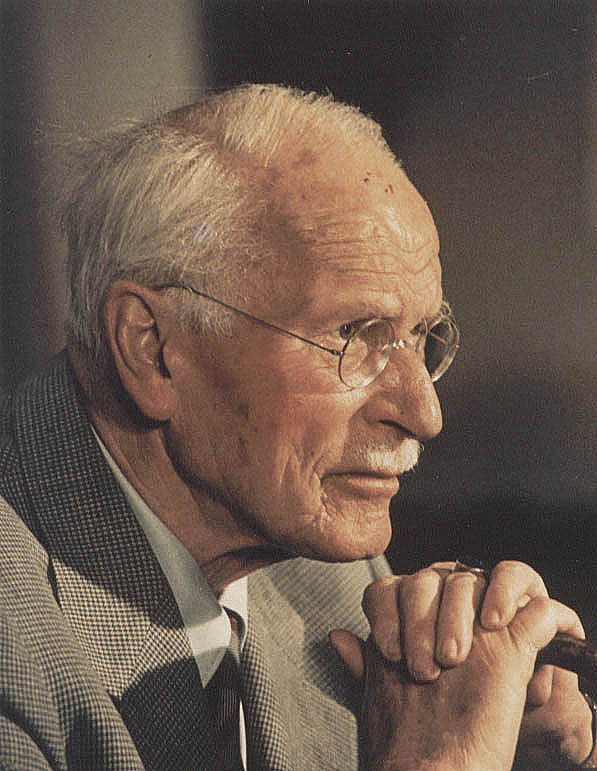By Upendra Mishra
I have no idea when and how I got interested in Swiss physician and psychoanalyst Carl Jung (1875-1961) and his writings, analysis and his dream theories. But once I got hooked, I read almost every Jung book housed in the Weston Public library. Some of them (like The Red Book, published 2009) I read several times.
I loved Jung’s concept of shadow. “The shadow personifies everything that the subject refuses to acknowledge about himself,” Jung wrote. This shadow approach did help me look at my own darker sides and fix them. Whether we acknowledge or not, we all carry our darker sides in our chest. “One does not become enlightened by imagining figures of light, but by making darkness conscious,” Jung said.

Somewhere I had read a Jung recommendation that we should write our dreams. From childhood, I used to see many vivid dreams and I still do. Surprisingly, I remember most of them. For about a couple of years, I even wrote them down. I would wake up in the morning, make my tea and sit down in front of my computer and write the dreams I remembered from the night.
Sometimes, I still go back and read those dreams from my journal and find them fascinating. I also wrote down a few key points from my dream book and keep them at my both work desk and home office desk, and try to follow my dreams. I am amazed to see how these messages from our own unconscious through our dreams lead us to the right path and make our life so peaceful and fun.
Here are a few lines from some of my dreams. Either I am thinking about these lines in my dreams, or someone is asking me do these things or I am having conversations with someone about these subjects. When I wrote my dream journal, I tried to be as accurate as I could remember. Here they are:
- If you want to bring a fundamental change in your life, start from zero. No baggage.
- Look inside yourself to find solutions.
- Discipline your mind.
- Pay attention.
- Do one thing at a time.
- Look at facts, not opinions.
- Science: Design a system, a scientific process to get things done.
- Be one. (Don’t be different person to different people.)
- Trust your inner self. Live inside out.
- Perform your action with devotion, but don’t expect anything in return.
- Once you start something, go all the way with full confidence.
- Stay completely focused on yourself and your goals. Absolutely no distraction.
My dreams always take me to my village, the mango orchards, the wheat and paddy fields, my village river, family and childhood and elder village friends. Sometimes I dream about my days in the Allahabad University and JNU. But even after living for nine years in Mexico and about 25 years in Boston now, I almost never dream in or about Mexico or Boston. Lately, however, I have noticed that my Boston life has started to (rarely though) surface in my dreams—mostly my garden and sometimes erratic driving and crashing cars, but still almost all my dreams are based in India, especially my village.
With my deep interest in dreams, I also tried to read Sigismund Freud (1856 –1939), the Austrian neurologist and the founder of psychoanalysis and modern psychology, but I found his writings boring and they did not make much sense to me. Maybe I did not understand this genius. But I love Jung. Still, wherever I see an article or research about Jung, I get excited and read it.

Jung coined a term called “individuation” or a process through which dreams integrate our conscious and unconscious lives. I often wonder why do we dream? Since we do dream and some of us remember them I think that there must be some purpose of our dreams. For the intellectual purpose, I find the Jung theory that dreams integrate our conscious and unconscious mind makes sense to me.
In addition to “individuation”, Jung also created concepts like synchronicity, archetypal phenomena, the collective unconscious, the psychological complex, extroversion and introversion, and the shadow. I think his theory of shadow is amazing and helps us understand ourselves better.
In 1938 in Psychology and Religion, Jung wrote: “Unfortunately there can be no doubt that man is, on the whole, less good than he imagines himself or wants to be. Everyone carries a shadow, and the less it is embodied in the individual’s conscious life, the blacker and denser it is. If an inferiority is conscious, one always has a chance to correct it. Furthermore, it is constantly in contact with other interests, so that it is continually subjected to modifications. But if it is repressed and isolated from consciousness, it never gets corrected.”
Years later in 1951 in Aion, Jung wrote: “The shadow is a moral problem that challenges the whole ego-personality, for no one can become conscious of the shadow without considerable moral effort. To become conscious of it involves recognizing the dark aspects of the personality as present and real. This act is the essential condition for any kind of self-knowledge.”
This concept of shadow was explained nicely in an article on “The Shadow Dance” I had read many years ago. It was written by Rebeca Eigen and printed in the Indigo Sun in the August 1999 issue and an edited version was reprinted in Conscious Living Magazine in their Winter Issue 2000.
Here are a few excerpts from The Shadow Dance article by Eigen:
“The Shadow, is a psychological term introduced by the late Swiss psychiatrist, Dr. Carl G. Jung. It is everything in us that is unconscious, repressed, undeveloped and denied. These are dark rejected aspects of our being as well as light, so there is positive undeveloped potential in the Shadow that we don’t know about because anything that is unconscious, we don’t know about.
The Shadow is an archetype. And what an archetype simply means is that it is typical in consciousness for everyone. Everyone has a Shadow. This is not something that one or two people have. We all have a Shadow and a confrontation with the Shadow is essential for self awareness. We cannot learn about ourselves if we do not learn about our Shadow so therefore we are going to attract it through the mirrors of other people.”
Eigen adds: “The first thing we have to do in order to begin to see our Shadowsides, is to take 100% responsibility for our lives. This is a very difficult thing to do and no one does this overnight so we have to be patient with ourselves.
Being in the human experience, we have all had many painful, difficult experiences where it clearly looks like it is the other persons fault, or bad luck in life or whatever else we want to call it. So taking total responsibility for what appears to come to us is no easy task but it is well worth the effort because when we take responsibility for what happens to us, we can then learn and grow from our experiences and make new choices for ourselves.
Changing our attitude from blame to responsibility will change what happens next in our world. Our destiny is of our own making and what goes on inside of us will be reflected outside of us all the time.
I am very fond of this ancient axiom given to us by the alchemists of long ago: “As above, so below, as within, so without, so that the miracle of the one can be established.” What it is saying is that what is within us, will also be oustide of us. Inner states of consciousness will be reflected in outer situations time and time again. If we are willing to look at the significance of these repeating patterns, we will see the syncronicity of events and situations and ultimately once integrated the miracle of the one is established as we become one with ourselves.”
Becoming one with ourselves is also the core message of Upanishads, and that is how we make our own destiny. This concept is beautifully stated in Brihadaranyaka Upanishad: “You are what your deep, driving desire is. As your desire is, so is your will. As your will is, so is your deed. As your deed is, so is your destiny.”
(Mr. Mishra is managing partner of the Waltham, MA-based integrated inbound marketing and PR firm The Mishra Group. He writes about his three passions: marketing, scriptures and gardening.)














Namaskar Upendra,
I just read your piece on Jung and it was great! It was thought provoking and really well done. I am a Jung fan myself. Jung , Aldous Huxley and Bertrand Russell were a few of my very key formative thought influencers when I started my quest to understand the world as a teen. I would love to see more of this material and your writings in your magazine.
I would recommend a book I read recently called Factfullness by Hans Rosling that deals with your rule number 6. Did you also happen to read Jordan Petersen? I just picked his book up. I did not see a reference to him in your write-up. He also talks about Jung and archetypes.
Hope all is well.
Best,
Deepa